Jusant on PC
Imagine a game that artfully tells a story without speaking a word, all while providing a smooth, fun, and fresh gameplay experience. Jusant does just that, telling a creative story filled with ups and downs, and while it isn’t the most refined, it managed to revitalize my love of indie games.
In a year so jam-packed with highly anticipated AAA games, it can be hard to find the time to pick up something less mainstream and give it the light of day. However, to look past Jusant would be a mistake, as it provides a completely different experience than every other game released in 2023. While there’s plenty of competition in the market, Jusant deserves recognition for the execution of the mechanics alone – but that’s far from all it has going for it.
As soon as I saw that Jusant was about climbing, I was in. Personally, I love climbing and have since my earliest memories. I love the way it makes you solve problems in your head, but then have to follow up on those theories with solutions. It’s why they call them “bouldering problems” when you’re climbing – each route serves as a problem that you’ve got to find the solution to.
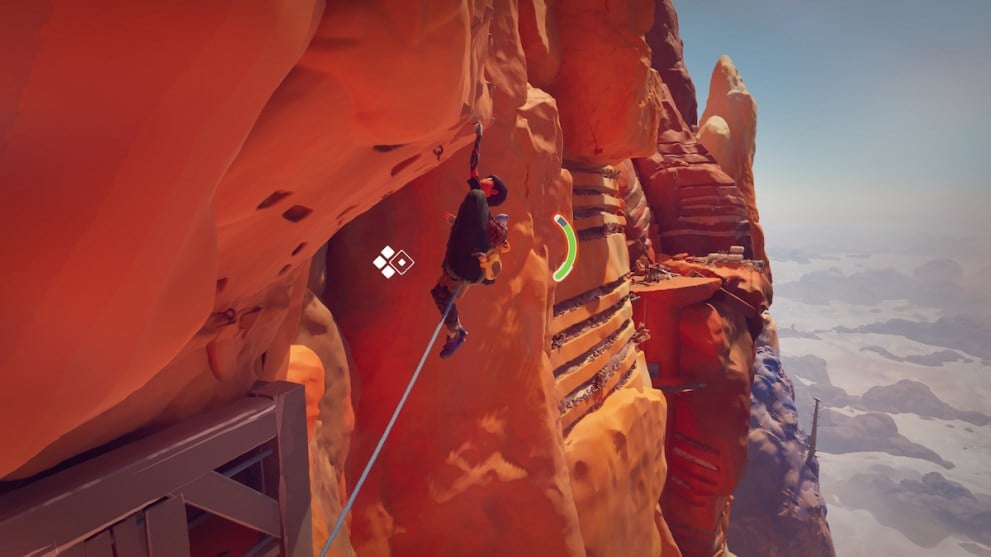
Jusant captures that feeling in a way that I never really thought a game could. Sure, I love the climbing sections in games like Uncharted, getting to see the scenic vistas and scrambling my way up impossible heights, but Jusant felt different. While the environment is gorgeous, you’re so focused on the climb that you forget everything around you but the handholds in front of your face.
The controls in the game are like nothing I’ve ever experienced. Playing on Steam, I wasn’t sure how things were going to feel when changing arms and maneuvering, but when the game recommends using a controller the moment you start.
While I was actually a little reserved in that regard, once I plugged one in I couldn’t imagine playing without it. Between using the triggers for each hand and having the joystick to control your swings, it just makes the whole experience much more enjoyable and clean.
I did still try to play with mouse and keyboard for a little while, but Jusant’s controls make so much more sense using a controller.
As the game goes on, you start to have a lot to pay attention to at once, and the last thing you want is to be fumbling your keybindings while your stamina is getting low. There were a few instances where I’d find myself stuck in a corner that I couldn’t jump out of or where my hand would start getting caught on other handholds, but altogether the game felt very smooth.
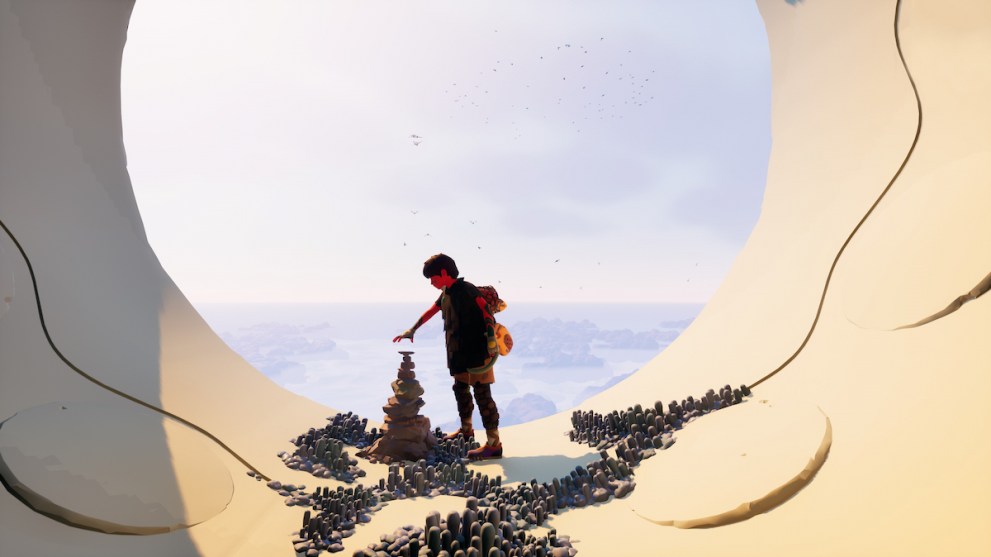
From almost every perspective, Jusant is absolutely breathtaking. From the graphics to the music to the story, I found myself captivated from every angle. There’s so much to see that I spent copious amounts of time running around and exploring corners just to see what was going on, and all the while being uplifted by soft, calming, and peaceful music as I made my climb.
Jusant’s story is entirely based around what you uncover from the world around you as you learn more and more about how resident’s lifestyles had to shift as a result of the “Jusant” – the French word for a receding tide.
In the case of this game however, that tide never quite stopped receding. As you play, you learn through letters and memories how this civilization that lived up the Tower had to adapt to the loss of their water supply as a result of the sun no longer moving in the sky. The loss of the ocean became something these people had to learn to live with, and as you progress you see how the dwindling options affected the population in various ways, depending on where they were located on the Tower.
You might question just how brilliant the story could be if you’re not even getting to see it as it happens, but it creates this air of mystery around everything. I would check the menu every time I picked up a letter because of how badly I didn’t want to miss out on anything prior. Everyone’s struggles feel so real and organic.
These letters deal heavily with the ideas of loss, moving on from home, and the fear of venturing towards uncertainty. As you progress further and climb higher, some of those letters start getting very emotional.
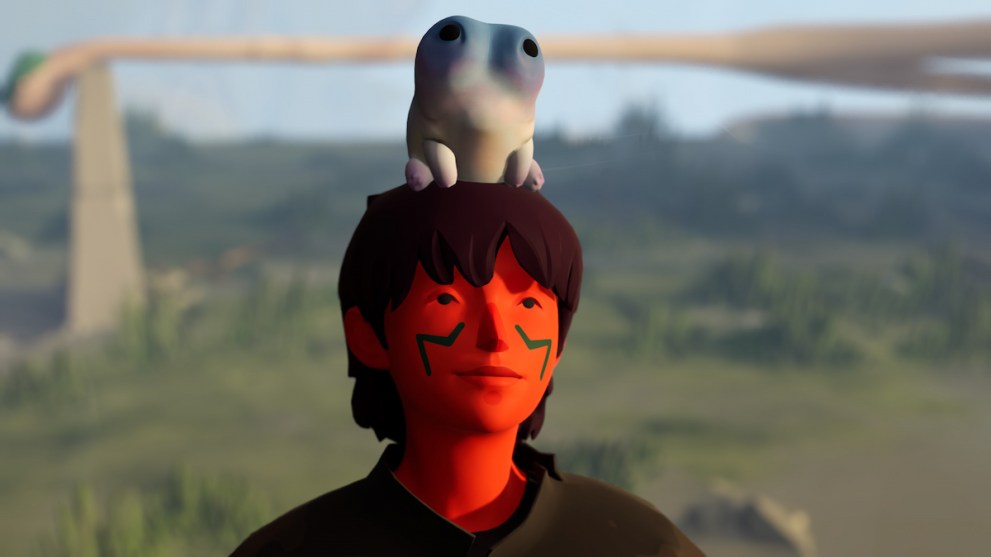
Not only can you find correspondences between people regarding what they were going through at the time they wrote the letters, but you’ll also be following the trail of Bianca, who’s essentially the protagonist that you never get to see. She was part of a group of climbers who ascended the Tower just as you are, in order to find answers and hopefully bring water back to the population. However, as you continue your climb, you find that she was growing and maturing as a person during her ascent all those years prior.
You come to care for Bianca and the rest of the people leaving notes and conversations from the past, even though you never get to see them. It becomes almost heartbreaking then, when you come to the realization that you aren’t actually going to meet these people, and that the very fact you’re there in the first place means that their expedition failed. It encourages you to mourn and cherish the past while also looking on towards what the future might hold.
There comes to be a sort of somber air to the game which became the driving force behind progressing further. As you climb higher and higher, people’s letters start turning more and more desperate as you learn more about the Jusant, how long ago it occurred and what the potential solutions were thought to be. This feeling of futility grows around you as you’re wandering through their history, reading about what hope they had left but finding their belongings long after they’d last been touched.
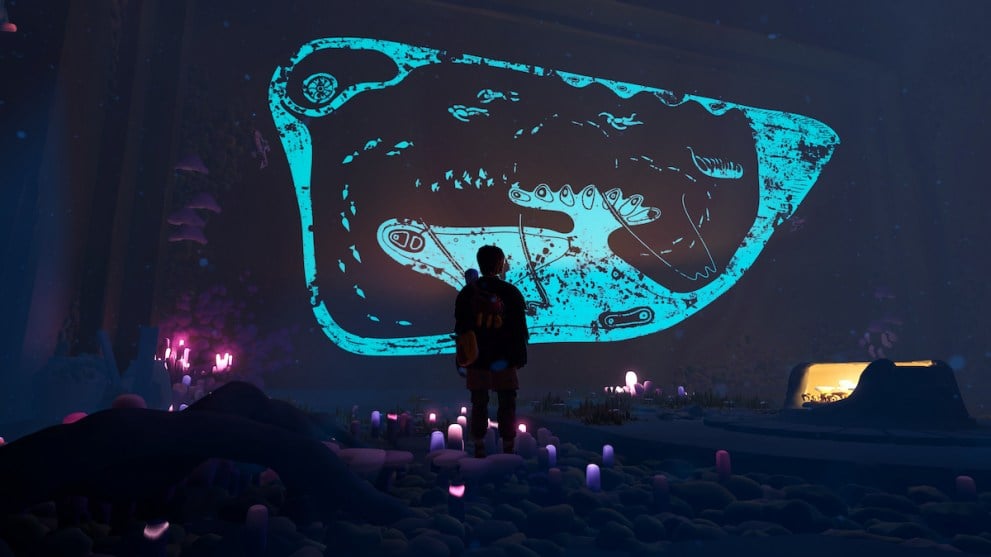
Luckily, company isn’t solely found in notes long lost, but instead in your little companion, Ballast. While he makes for a great pal, squeaking and squealing about on your shoulder, he also helps you climb higher along the tower. You can use his power to interact with certain objects around you, allowing you to climb where you couldn’t prior. You can also use him to complete your gallery of glyphs that you’ll find as you make your way up into the sky.
Jusant’s art style will be a joy for everyone. It’s smooth, well-textured, colorful, vibrant, and diverse, with each area you climb through looking strikingly different from the last. You can always tell where you are, and it’s generally pretty clear to find where you’re going, even with the game’s lack of waypoints. The gameplay is true to how you’d actually climb a rock face like the Tower, meaning you’ve got to look at where you want to go and work through just how to get there before you even consider grabbing a handhold.
While never reaching a point of frustrating, Jusant finds clever ways to challenge and puzzle you as you climb, making sure that the gameplay doesn’t get stale. It introduces different challenges as you go that you can learn to use to your advantage, like climbing in the wind or carefully aiming distant leaps, but there is no skill-tree system to make anything easier. You’ll finish your climb just about as skilled as you began, but you’ll learn to adapt your technique to speed up your ascent.
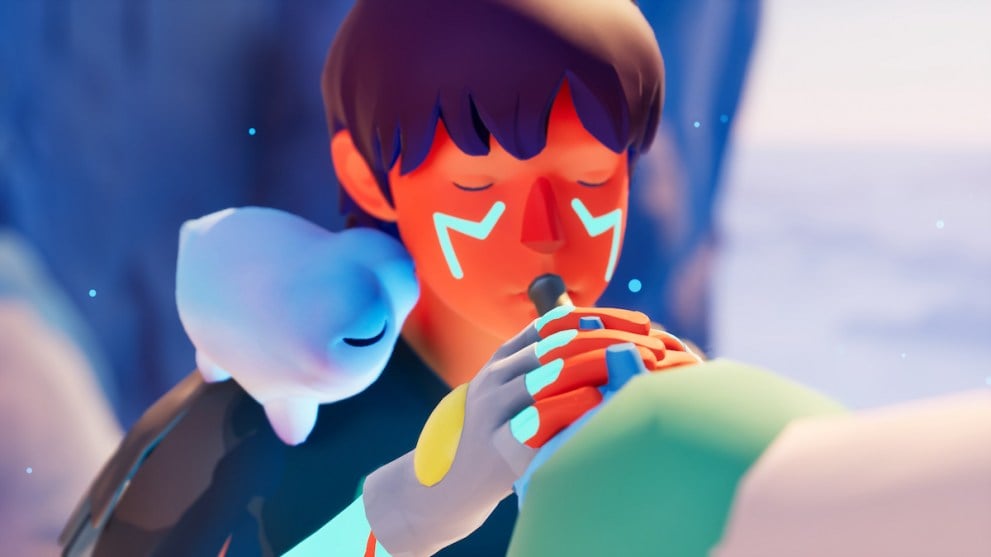
Jusant is also not an incredibly long game. I was able to finish it in around 7 hours, and that was with exploring nooks and crannies to find different letters. You can replay individual chapters after you’ve finished it though, so anything you didn’t get a chance to grab on your first trip up will be accessible later without having to redo the whole climb.
It’s incredibly easy to pick up and put down if you have to as well: the main menu is just you and Ballast sitting right where you left off and you can pick right back up from there.
You can clear your head and focus on the climb, or you can focus on collecting every scrap of history that there is to find. Even the letters that I found heartbreaking served to be thought-provoking and they motivated me to climb towards something that these people weren’t able to see. There was never a point where I grew tired of playing Jusant, whether in the story or the mechanics. If anything, As I grew more tired in my day, I found myself wanting to load the game up to unwind.
All in all, Jusant is a delightful joy of a game, and one I’ll use as a standard for indie games from this point on. Not only was it visually striking, but the developers had something to say and they expressed it flawlessly. It finds the perfect balance of being light-hearted while respectfully diving into some darker themes, and the game functions as a dichotomy between the failings of the past and what they can teach the future. That in and of itself is beautiful, but to then seamlessly combine those themes with the blissful experience of climbing makes for an experience that I won’t forget.
- Control scheme perfectly translates the feeling of climbing to a controller
- Visuals are striking and vibrant, while not being distracting
- Story is original, well-executed and thought-provoking
- Easy-to-miss collectibles make you feel like you're missing out unless you find them
- Some animations glitch under varying circumstances

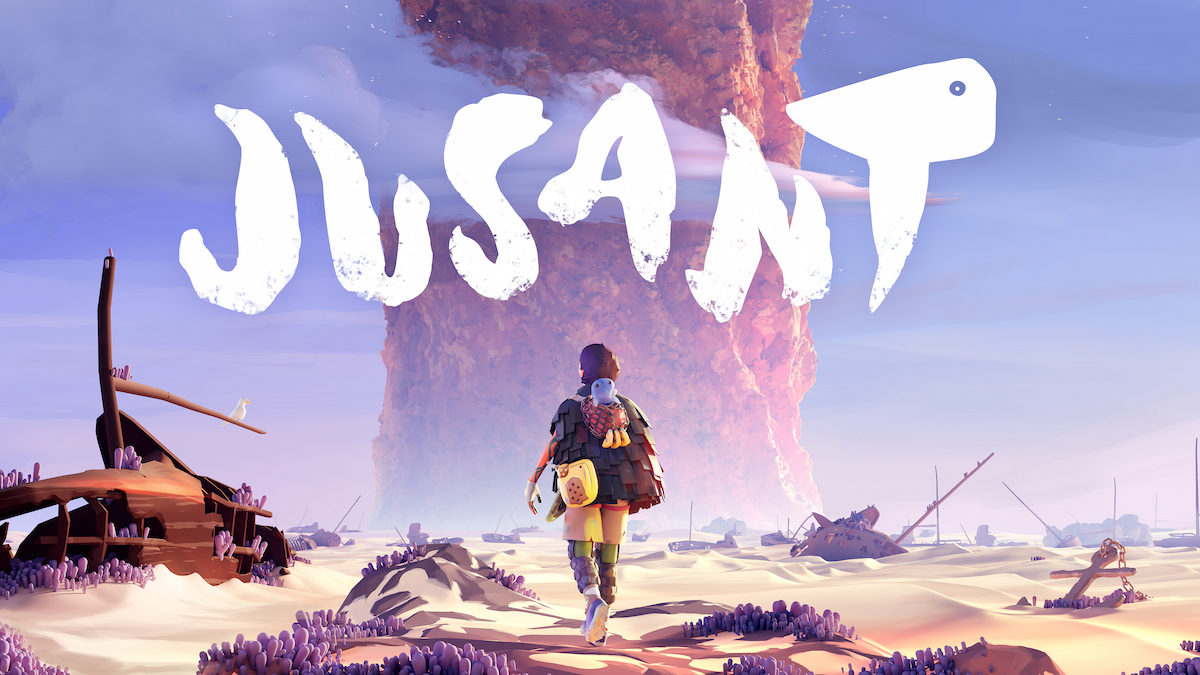









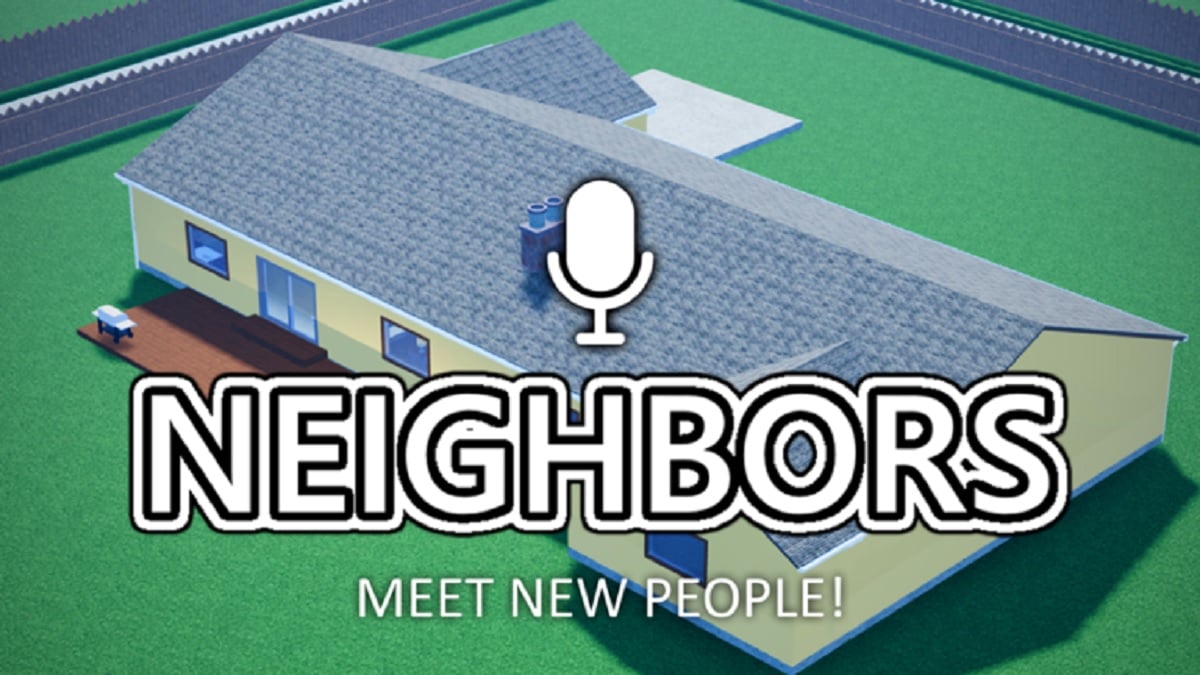
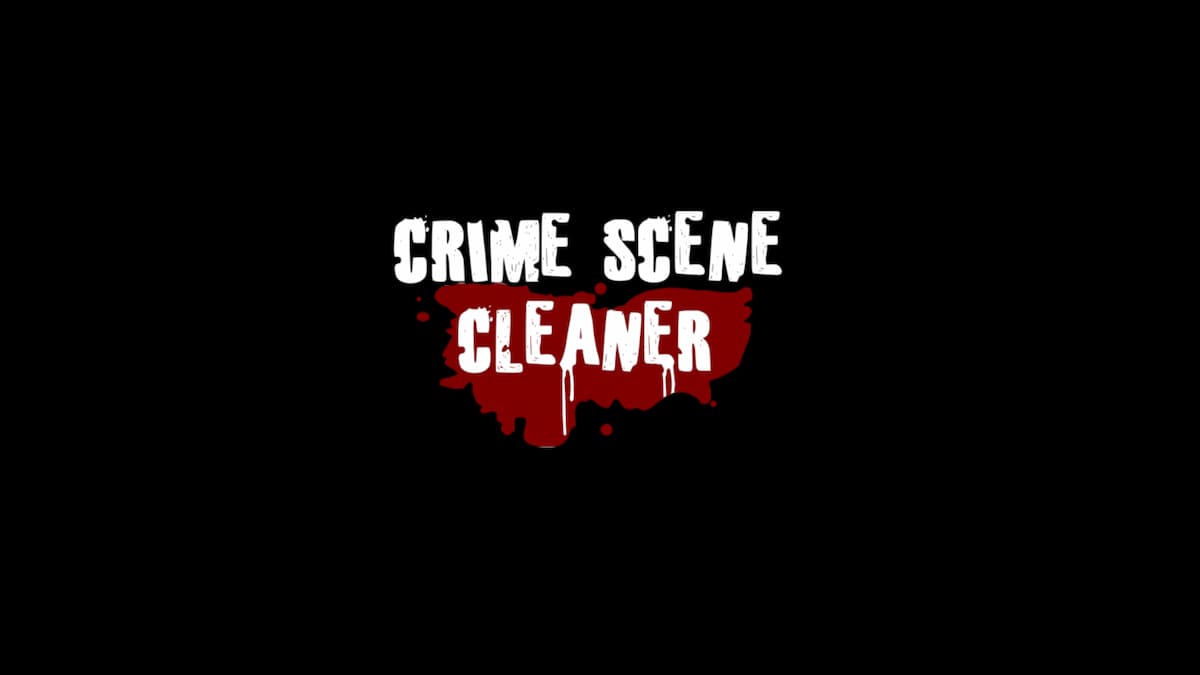

Updated: Oct 31, 2023 06:54 am